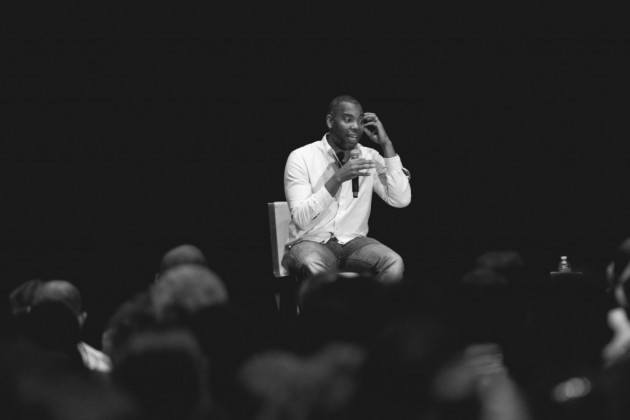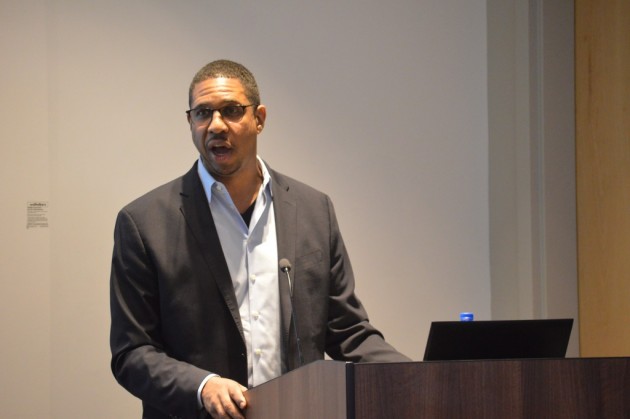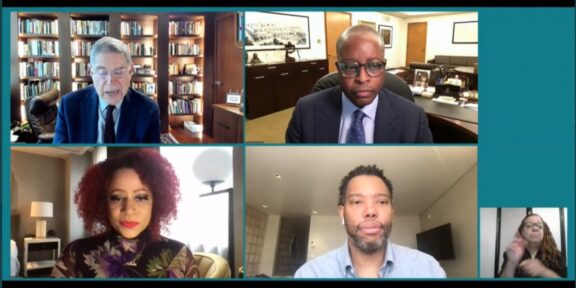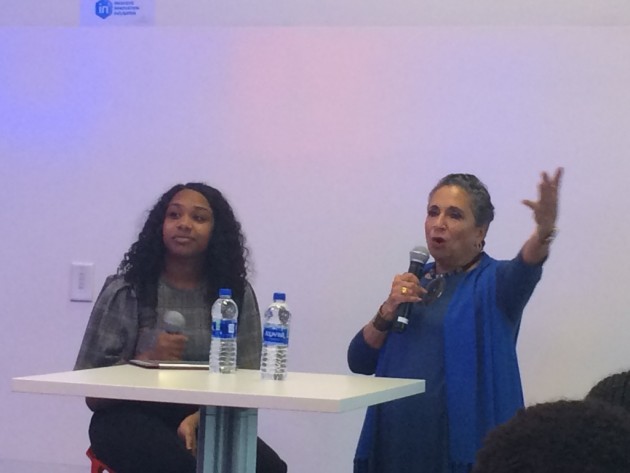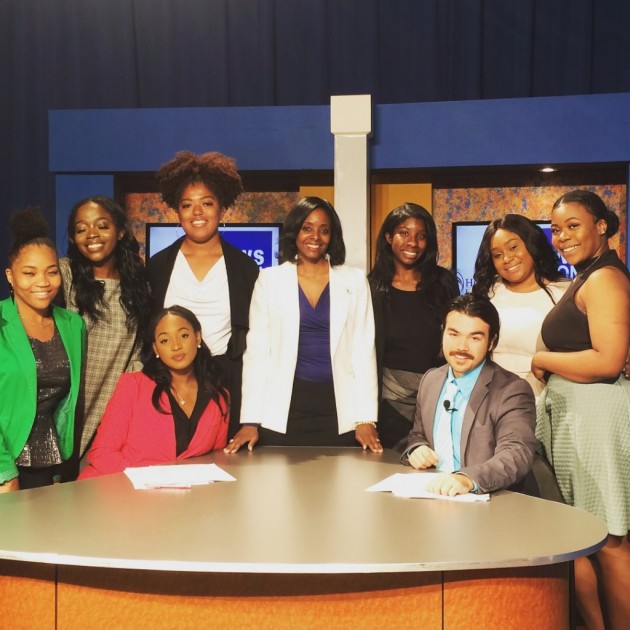By Ian Mahon, Howard University News Service
WASHINGTON, D.C. – Ta-Nehisi Coates’ tone was candid and jocular as he reflected on the two terms President Barack Obama was in office. Speaking to a sold-out crowd at the Smithsonian National Museum of African American Culture and History Tuesday, Oct. 10, the journalist and author was there as part of a national tour promoting his new book, We Were Eight Years in Power: An American Tragedy, released last week.
“It was like a shock, like ‘what’re you calling me for?’” Coates said remembering the first time former President Obama called him over the phone. “’You’re out saving the world, what do you want to talk to me for?’ That was the feeling.”
Coates is best known for his seminal work Between the World and Me, a 2015 best-selling nonfiction book about race relations in the United States. The book won the National Book Award for Nonfiction in 2015. Bobby Cohn, the president of The Atlantic, the magazine Coates writes for, called him a “genius” in reference to his 2015 MacArthur Fellow status before Coates took to the stage.
Coates’ seminar was attended by about 600 people packed into the National Museum’s Heritage Hall on the main floor. The seating provided was taken in a matter of minutes. The seminar was arranged as a collaboration between the Smithsonian Institute and The Atlantic and moderated by journalist Michele Norris. Copies of Coates’ new book were available for purchase courtesy of the Smithsonian Institute, 100 of which were pre-signed by the author himself.
Besides speaking about his new book, a collection of eight essays reflecting on each year of Obama-era race relations in the country, commingled with his own personal reflections on former President Obama, Coates ran through a gamut of topics with Norris. On an “authority of honesty,” as Norris said, Coates revealed his feelings for the current President, his views on the current NFL protests started by Colin Kaepernick and the removal of Confederate statues, and his contempt for intellectuals who see him as a prophet with a final answer for racism in the U.S., saying “don’t outsource your critical thinking to me.”
“I hope people read, I hope they derive inspiration, I hope they derive insight, but I really fear the notion of a conversation ending with me,” he said. “It should be an invitation to go have other conversations.”
Despite Coates bemoaning the perception of himself as a black man who speaks omnisciently for every black American, Coates believed the perception was more appropriate with Obama, calling the former president a “kind of ambassador” from black America to the rest of the country. Coates spoke of Obama with respect as he remembered the rapport established with him toward the end of his presidency. Coates recalled how he didn’t expect him to be receptive to the conversation of reparations for historical wrongs when the two spoke in the White House before Obama left office last year.
“It’s just not your expectation,” Coates said, “that politicians are going to be particularly curious about things beyond the immediately doable.”
As Coates spoke as an authority of honesty, he admitted views others wouldn’t find pleasant. He had no expectation of the success of his book, Between the World and Me, and wanted to just “get it done with.” He doesn’t always vote in elections despite telling the audience there is never a good reason to not vote. He added that race relations would probably not improve any time soon, among other things. Though Coates did not possess the emblematic hope that defined Obama’s character, Coates told the audience why being a writer is still important to him.
“I see my role as not to write as though I’m a Senate aid trying to get policy passed,” Coates said, “I’m supposed to say things that hopefully adjust the entire process, that adjust the entire context, to see what is actually possible to pass.”

